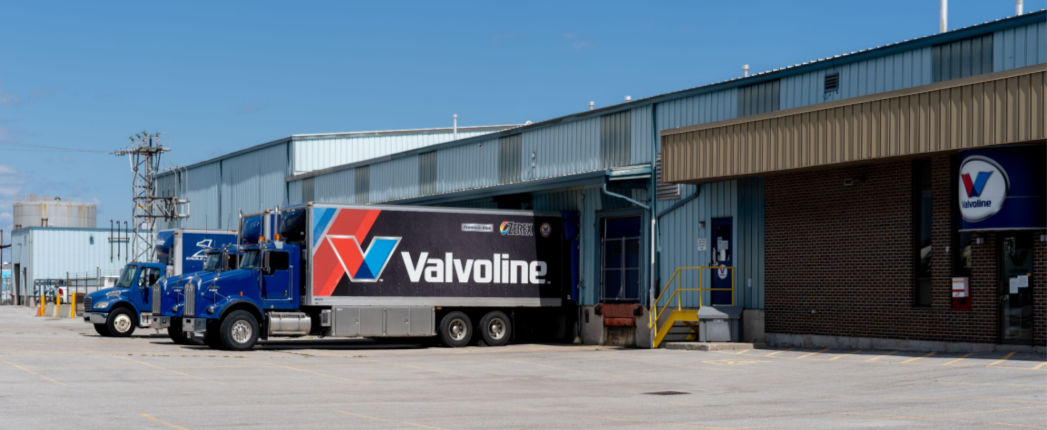
Saudi Aramco announced on Monday a $2.7 billion deal to acquire Valvoline’s Global Products business, which is its lubricant and maintenance product sales segment. The acquisition marks not just a massive expansion for the state-owned oil company but a complete shift for Valvoline to a service-driven business model.
This comes just two months after Saudi Aramco initially expressed interest in buying the segment, according to reports. In one move the company has set itself up as a much larger player in the lubricants sector.
Having not been in the finished lubricants business since 2007 after selling its stake in the Petromin joint venture, it re-entered the market with the launch of its Orizon brand of lubricants in Saudi Arabia.
“Valvoline’s global products business fits perfectly with Aramco’s growth strategy for lubricants as it will leverage our global base oils production, contribute to our R&D capabilities and strengthen our existing relationships with OEMs,” Mohammed Y. Qahtani, Aramco’s senior vice president of downstream, said in a press release.
Just under a year ago, Lexington, Kentucky-based Valvoline announced it was restructuring its three business segments into just two: Retail Services and Global Products. Retail Services encompasses its quick lube service centers, and Global Products consolidated its Core North America and International segments, which represents its lubricant and maintenance product sales.
At the time of the restructuring, Valvoline emphasized its focus to switch to a more service-driven strategy in hopes of accelerating growth.
“The sale of Global Products will represent the successful outcome of our strategy to unlock the full, long-term value of our strong but differentiated Retail Services and Global Products businesses,” Valvoline CEO Sam Mitchell said. “We have built two leading businesses that are well positioned for continued success as they pursue their individual strategic priorities.”
Valvoline said it expects the Retail Services section to reach approximately $1.5 billion in sales for fiscal year 2022, which would be a 20% increase over 2021. The company operates almost 1,700 retail locations as of the end of June.
Saudi Arabian Oil Co., Aramco’s formal name, was already an established player in the base oils sector. In recent years it has acquired Motiva, which has one of the world’s largest base oil plants along the U.S. Gulf Coast; a majority stake in S-Oil, which operates the largest base oil plant in the world in Onsan, South Korea; and has long had a majority stake in rerefining joint venture Luberef, which owns two base oil plants in Saudi Arabia.
With the acquisition, Aramco joins the ranks of other large merchant suppliers of base oil that are also large suppliers of finished lubricants. Being a large merchant supplier of both products is a balancing act, because a base oil customer may also compete with the merchant base oil supplier in the finished lubricants market.
Geeta Agashe, of consulting firm Geeta Agashe & Associates, said she believed Aramco’s interest in Valvoline’s Global Products business is three-fold. “First, Valvoline does not own any base oil assets,” Agashe told Lube Report. “So, Valvoline’s finished lubricants can provide a good home for Aramco’s base oil molecules. Apparently, not just for the Valvoline lubricants in the Global Products segment that they purchased, but also for the lubricants used in Valvoline Retail Services segment.”
Her second point was the value of the Valvoline lubricants brand. “Acquisition of this business gives Aramco critical volume, and a globally accepted and in many markets a highly revered and leading finished lubricants brand,” Agashe said. “Aramco realizes that it takes years to build a new solid, global finished lubricants brand.”
Her third point was that the acquisition brings with it many lubricants approvals. “Valvoline has many OEM approvals in place, and the Valvoline-Cummins relationship creates a lot of value not only in the mature markets, but the fast-growing markets of the world, especially in the heavy-duty segment,” she said.
Ernie Henderson, president of K&E Petroleum Consulting, noted that Saudi Aramco has wanted to establish a finished lubricants business to complement its base oil business. “The question has always been, ‘How do you grow a brand?’ Starting from scratch can be very frustrating; however, buying a well-established brand provides instant credibility,” Henderson told Lube Report. “The Valvoline brand is well established globally, with focus in the U.S. and Europe. They are, however, a global brand with brand recognition.”
He pointed out that Valvoline is heavily involved in the passenger car motor oil area, where low viscosity engine oils demand more and more API Group III base oil. “That fits in nicely with Aramco,” Henderson said. “They also have a strong [heavy-duty engine oil] position through Cummins that also bodes well for Group II and longer-term Group III supply opportunities. This should also assist Motiva and the utilization of its base oil production, with Valvoline now a strategic customer.”
Once the transaction closes, Valvoline will own the Valvoline brand for retail service purposes globally – sans China and some countries in the Middles East and North Africa – while Aramco will own the Valvoline brand for all product uses globally. Valvoline will also procure motor oil and related products from the Global Products business as part of a long-term supply agreement.
According to Agashe, Valvoline has also established itself as the world’s No. 1 supplier of battery fluids to electric vehicle manufacturers, offering tailored products to help extend vehicle range and efficiency. Within the U.S., she said, Valvoline is the No. 3 branded motor oil in the do-it-yourself market by volume.
“I believe Valvoline’s leadership believes that the strategic future of the company is in the installed segment with the servicing of internal combustion engine, electric and hybrid vehicles,” Agashe said. “The sale has generated significant cash flow, which will allow them to give back to shareholders, invest more in Retail Services, and solidify their balance sheet. It is a ‘win-win’ for both companies.”
The equity purchase deal is expected to close in either late 2022 or early 2023.
-George Gill contributed to this article.